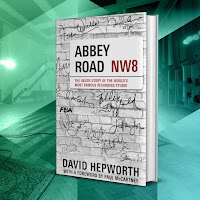
I was on a school trip to France when England won the World Cup in 1966.
When we returned the following week there was a mysterious-looking LP in the window of the shop near school. It turned out to be The Beatles “Revolver”.
I can’t honestly remember exactly how it struck us at the time. Maybe we were spoilt. Certainly we’d grown accustomed to having our clock cleaned by pop music on a weekly basis.
Many of the aspects of “Revolver” that people have spent the subsequent sixty years raving about seemed par for the course in 1966.
I played it through the other day and was struck instead by the things they did in 1966 that nobody seems to do any more.
“Taxman”
It fades in a way that simply wouldn’t be allowed to happen today. If a band were - forgive me - cooking the way the Beatles are during Paul’s guitar solo that band would plough on, inviting us to admire their intensity.
“Eleanor Rigby”
With the Beatles it's never the songs. It’s always the records. They thought of themselves as Recording Artists. All the pathos comes from the formality of the way they chose to record the song rather than the song itself
“I’m Only Sleeping”.
When I was fifteen I probably thought pop singers had access to some special wisdom. Now I’ve met hundreds of them I realise their specialist subject is fatigue.
“Love You To”.
I feel just as unmoved by this as I did sixty years ago. The difference is that now I appreciate how remarkable it was that George devoted one of his two tracks to what was effectively homework and that the rest let him do it.
“Here There and Everywhere”.
They had learned from Motown girl groups the importance of wordless backing vocals. Hence they really commit to every last "ooh" of the backing vocals in a way it’s difficult to imagine any contemporary band doing.
“Yellow Submarine”.
At the time it didn’t strike me that nobody else in pop music would ever have a fraction of the Beatles’ range. We just thought it was the way they were.
“She Said She Said”
Their middle eights were like booster rockets. I honestly don’t know how other bands can hear the amount they pack into the bit that goes “when I was a boy” in this song and think they’re in the same profession, let alone the same league.
“Good Day Sunshine”
In my book about Abbey Road (plug) one of the engineers talks about how rock and roll meant the studio were suddenly dealing with “amateurs”, by which they meant people who couldn’t just sit down with the sheet music and knock it out first time. The Beatles couldn’t do that either but here they had George Martin to play the solo that nobody else could play. It makes a difference.
“And Your Bird Can Sing”
Hear that opening guitar line? If anybody came up with that now they would play it for a good thirty seconds before the song would start.
“For No One”
“You want a French horn part? We know just the man.” Could never have happened on any other label or in any other studio.
“Dr Robert”
As pop music got more idiosyncratic in the mid-Sixties we drank in the song titles of upcoming albums as they were unveiled in the news pages of the inkies. The titles we liked most were the ones, like “Dr. Robert”, which seemed both mysterious and specific.
“I Want To Tell You"“It’s only me, it’s not my mind that is confusing things”. The first stirrings of therapy pop?
“Got To Get You Into My Life”
Some reckon the Earth, Wind and Fire version of this is one of the great Beatles cover versions. Personally I hate their version, just like I hate every other example of Proper Musicians taking Beatles records, removing their blazing simplicity and putting pointless elaboration in its place.
“Tomorrow Never Knows”
When this came out we made a fuss about the words. Tibetan Book Of The Dead. Coo. Sixty years later the thing that really strikes me is how up-tempo it is. No doubt about it. The world has really slowed down since 1966.








